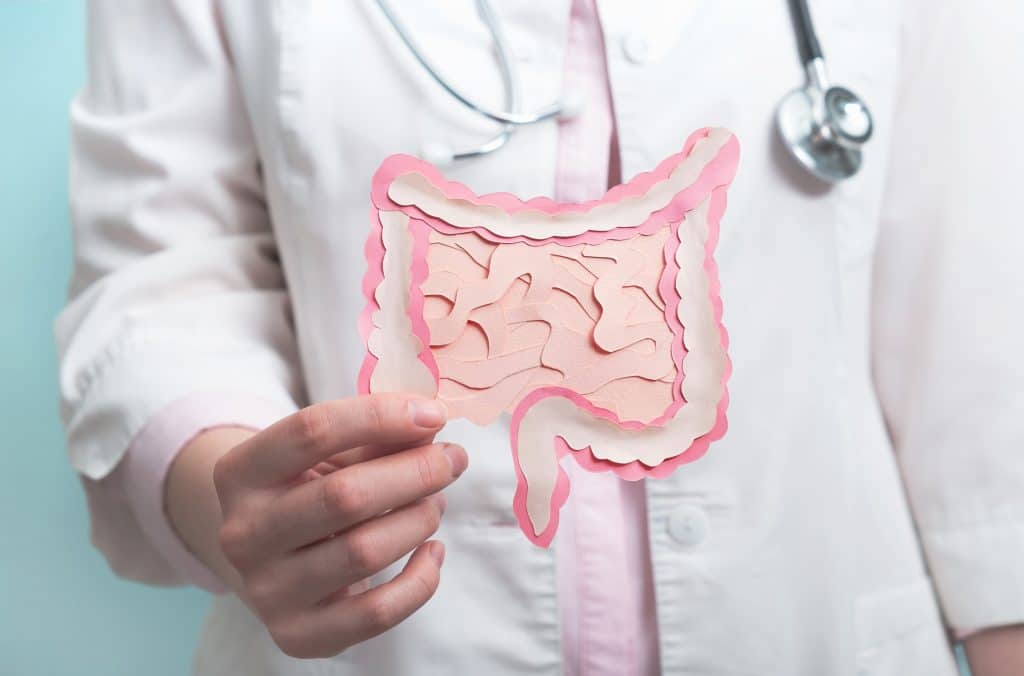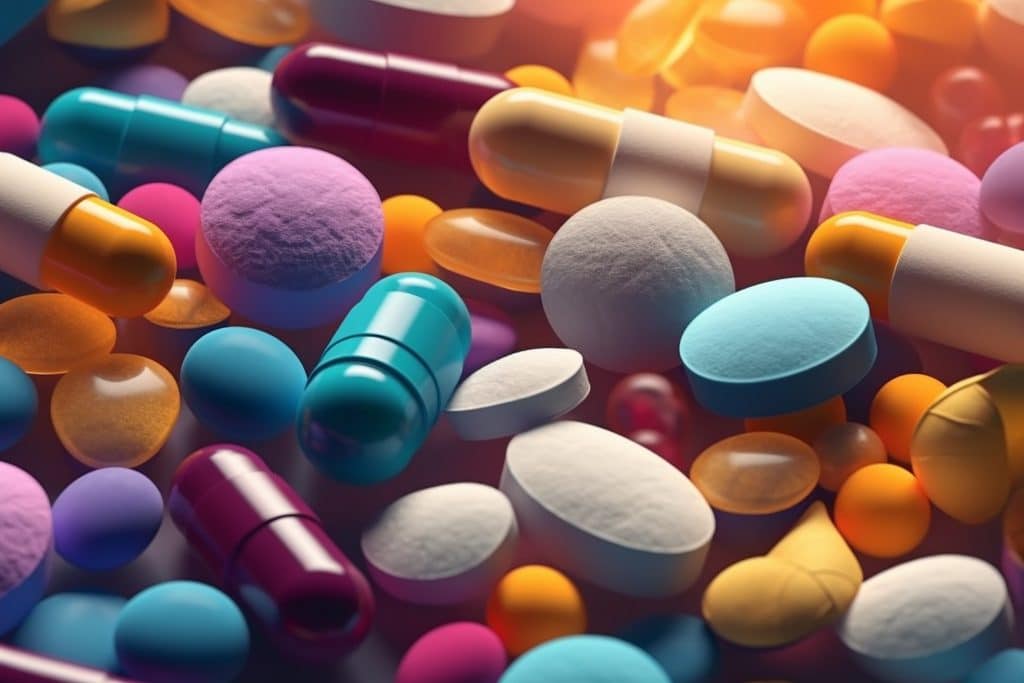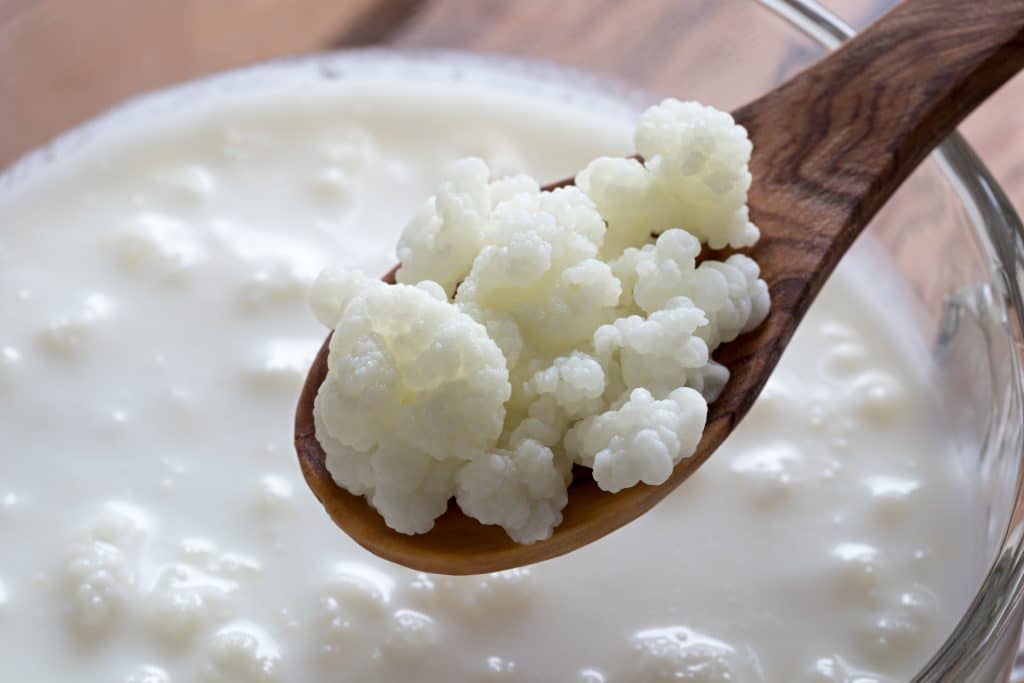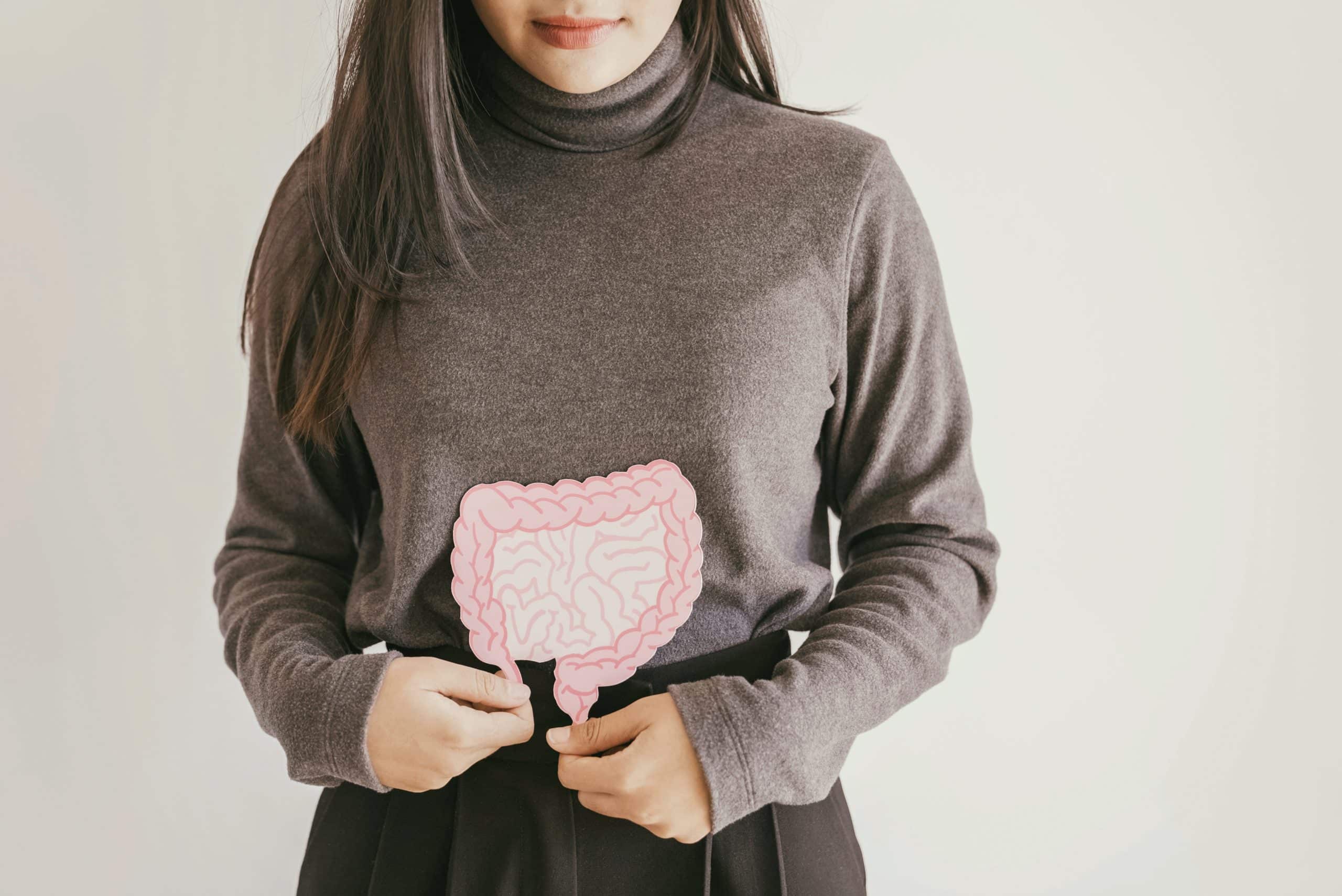What Causes Microbiome Dysfunction – And How To Optimize The Microbiotica
Exactly what causes microbiome dysfunction is complex, as the human microbiome is a dynamic system of microorganisms that plays an important role in health and well-being. While there are many beneficial microbes that make up the microbiome, when unbalanced, it can lead to dysfunction and poor health outcomes.
The most common causes of microbiome dysfunction are diet, environmental exposures, antibiotic use, stress, and aging. A poor diet that is high in processed foods with little to no fiber can disrupt the gut microbiome and lead to dysbiosis.
Environmental toxins such as heavy metals, pesticides, and industrial chemicals can also contribute to a disruption in the delicate balance of microbes in our bodies. Antibiotics, while lifesaving in certain instances, can also have a damaging effect on the microbiome. Similarly, chronic stress and aging are known to change the composition of the gut microflora.1
What Causes Microbiome Dysfunction – Diet
Diet has a significant impact on the microbiome. Eating processed foods with limited nutrient content can lead to an imbalanced microbiome. On the other hand, a diet that consists of whole foods such as fruits, vegetables, nuts, grass-fed meat, and grass-fed dairy is beneficial for the diversity and composition of the gut microbiome.2 Additionally, consuming probiotic-rich foods such as yogurt, kefir, sauerkraut, miso soups, and tempeh can support a healthy microbiome.3
Another way to promote a healthy microbiome is to reduce sugar intake. Too much sugar can lead to an overgrowth of harmful bacteria, which can cause inflammation and a weakened immune system.4 Finally, reducing the consumption of alcohol can help balance the microbiome. Research has shown that large amounts of alcoholic beverages can disrupt the beneficial bacteria in the digestive system.5
Read more about my Cellular Healing Diet.

What Causes Microbiome Dysfunction – Artificial Sweeteners
Artificial sweeteners have been widely used in food and drinks for decades as an alternative to sugar. They are usually much sweeter than normal sugars and contain fewer calories. Although they have traditionally been thought of as a healthier option, recent studies suggest that artificial sweeteners may actually have a negative impact on our intestinal microbiome.
These findings suggest that consumption of artificial sweeteners can lead to an imbalance of the microbiome, and consequently, a disruption of our normal metabolic processes. Studies have found that aspartame, saccharin, and sucralose can cause changes in the composition and diversity of bacteria in the gut. Additionally, research suggests that artificial sweetener consumption is associated with an increased risk of developing metabolic disorders and inflammatory bowel disease.
In fact, Sucralose consumption has recently been associated with developing Leaky Gut Syndrome.6
Read more about Leaky Gut Syndrome.
These worrying findings suggest that artificial sweeteners are not necessarily healthier options and could potentially be contributing to microbiome dysfunction. Therefore, it is important to limit our consumption of these products as much as possible, choosing natural alternatives instead. By doing so, we can help keep our microbiome healthy and balanced for optimal health.7
What Causes Microbiome Dysfunction – Environmental Factors
Environmental factors play a crucial role in the development and maintenance of a healthy microbiome. Unhealthy environments can lead to an imbalance in the composition of beneficial bacteria, leading to dysbiosis or microbiome dysfunction. Factors such as air pollution, water contamination, and soil depletion can cause changes in microbial communities that are detrimental to overall health. Poorly managed agricultural practices can lead to nutrient-poor soil, which can affect the availability of essential nutrients. Toxic exposures to environmental pollutants can also lead to detrimental changes in the microbiome that contribute to disease.8
What Causes Microbiome Dysfunction – Toxic Chemicals
Toxic chemicals are one of the main causes of microbiome dysfunction. Exposure to toxic chemicals such as heavy metals, pesticides, and industrial pollutants can disrupt a person’s microbiome by either killing off beneficial bacteria or enabling pathogenic bacteria to flourish. Studies have also shown that exposure to air pollutants can alter the composition of the gut microbiota and lead to inflammation. Therefore, limiting exposure to toxic chemicals is an important step toward protecting our microbial communities and promoting health.9
Heavy metals are some of the most common environmental pollutants and can wreak havoc on our microbiome. Heavy metals such as lead, mercury, arsenic, chromium, and cadmium often accumulate in soils, water sources, and the air we breathe. When these heavy metals enter our bodies they can create oxidative stress leading to cell death or damage. This cell damage affects not only us but also the bacteria in our microbiome. Heavy metal exposure can lead to an imbalance of beneficial and pathogenic bacteria, causing a dysbiosis of our microbiome.10
Read more about common toxins we should stay away from.
What Causes Microbiome Dysfunction – Antibiotic Use
One of the leading causes of microbiome dysfunction is antibiotic use. Antibiotics are a type of medication that is designed to specifically target and kill bacteria, but they can also cause collateral damage to beneficial bacteria in the microbiome. This disruption leads to an imbalance of good and bad bacteria, which can lead to dysbiosis, a condition where the microbiome environment becomes imbalanced and can cause a variety of health issues.
Additionally, the overuse or misuse of antibiotics can create antibiotic-resistant bacteria, which further exacerbates the issue. To help prevent microbiome disruption from antibiotic use, it is important to only take antibiotics when absolutely necessary and for the full prescribed duration of time.11

What Causes Microbiome Dysfunction – Medications
Medication can cause microbiome dysfunction. Common OTC medications, such as antacids, antihistamines, and corticosteroids can all disrupt the balance of the gut microbiome. Steroid use has been linked to microbiome dysfunction. This is because it suppresses the immune system, which can disrupt the normal microbial balance.
Steroids are commonly used for a variety of medical reasons, including treating asthma and autoimmune diseases. While they may be beneficial in some cases, long-term steroid use can cause serious side effects, including disruption of the microbiota. This can lead to increased susceptibility to infections, complications from gastrointestinal disorders, and altered nutrient absorption.
Antacids reduce stomach acidity which can have a negative effect on beneficial bacteria growth. Anti-histamines can also reduce the production of gastric acid which can have adverse effects on beneficial bacteria growth. Similarly, some drugs used to treat conditions such as depression, and high cholesterol may alter the composition and functioning of the microbiome.12 13
What Causes Microbiome Dysfunction – Stress
Stress, both physical and psychological, can also lead to dysbiosis. Prolonged or extreme stress causes a cascade of biochemical changes in the body that can suppress immune function, disrupt hormones, and interfere with digestion, all of which can affect the microbial balance in the gut. Additionally, chronic stress is often associated with emotional eating, which can lead to poor dietary choices and further disruption of the microbiome.14

How To Optimize The Microbiotica – Removing Heavy Metals From The Body
One way to remove heavy metals from the body is through chelation therapy, a process that involves administering a chelating agent to bind and remove heavy metals from the blood and tissues. These agents like DMSA and DMPS may be administered orally or intravenously.15 16
Read more about how toxic heavy metals are.
How To Optimize The Microbiotica – Consuming Natural Probiotics
The best way to optimize the microbiome is to consume natural probiotics. Probiotics are live microorganisms that, when ingested, provide beneficial bacteria for the gut. They are naturally found in fermented foods and beverages such as yogurt, kombucha, sauerkraut, kefir, and kimchi. These food sources contain high levels of certain probiotic strains that can help maintain a healthy balance of gut bacteria.3
In addition to consuming natural probiotics, it is important to eliminate foods and beverages that disrupt the microbiome. This includes processed foods, refined sugars, artificial sweeteners, alcohol, and other chemicals found in certain food products. Consuming these substances can lead to an imbalance in the gut flora, which can compromise digestive and immune health.
It is also important to consume a variety of nutrient-dense fruits, vegetables, nuts, seeds, grass-fed meat, grass-fed dairy, and healthy fats such as olive oil and avocado. These foods contain prebiotics which are essential for the growth and activity of probiotic bacteria in the gut. Prebiotics feed the good bacteria, helping to optimize the microbiome.17
Finally, getting regular exercise is an important step in optimizing the microbiome. Exercise helps to stimulate gut movement and digestion, leading to better overall digestive health. Additionally, exercise helps to boost the immune system in order to fight off harmful bacteria and infections.18

What Causes Microbiome Dysfunction – And How To Optimize The Microbiotica
Now that you know what causes microbiome dysfunction, you can optimize it with a number of strategies. Lifestyle improvements that increase microbiome diversity and health include eating whole, organic foods, consuming both natural probiotics and prebiotics, staying away from environmental toxins, reducing stress, limiting antibiotic use, and exercising on a regular basis.
Read more about Irritable Bowel Syndrome.
References
1 Tu P, Chi L, Bodnar W, Zhang Z, Gao B, Bian X, Stewart J, Fry R, Lu K. Gut Microbiome Toxicity: Connecting the Environment and Gut Microbiome-Associated Diseases. Toxics. 2020 Mar 12;8(1):19. doi: 10.3390/toxics8010019. PMID: 32178396; PMCID: PMC7151736.
2 Topping DL, Clifton PM. Short-chain fatty acids and human colonic function: roles of resistant starch and nonstarch polysaccharides. Physiol Rev. 2001 Jul;81(3):1031-64. doi: 10.1152/physrev.2001.81.3.1031. PMID: 11427691.
3 Stiemsma LT, Nakamura RE, Nguyen JG, Michels KB. Does Consumption of Fermented Foods Modify the Human Gut Microbiota? J Nutr. 2020 Jul 1;150(7):1680-1692. doi: 10.1093/jn/nxaa077. PMID: 32232406; PMCID: PMC7330458.
4 Satokari R. High Intake of Sugar and the Balance between Pro- and Anti-Inflammatory Gut Bacteria. Nutrients. 2020 May 8;12(5):1348. doi: 10.3390/nu12051348. PMID: 32397233; PMCID: PMC7284805.
5 Engen PA, Green SJ, Voigt RM, Forsyth CB, Keshavarzian A. The Gastrointestinal Microbiome: Alcohol Effects on the Composition of Intestinal Microbiota. Alcohol Res. 2015;37(2):223-36. PMID: 26695747; PMCID: PMC4590619.
6 Susan S. Schiffman, Elizabeth H. Scholl, Terrence S. Furey & H. Troy Nagle (2023) Toxicological and pharmacokinetic properties of sucralose-6-acetate and its parent sucralose: in vitro screening assays, Journal of Toxicology and Environmental Health, Part B, DOI: 10.1080/10937404.2023.2213903
7 Ruiz-Ojeda FJ, Plaza-Díaz J, Sáez-Lara MJ, Gil A. Effects of Sweeteners on the Gut Microbiota: A Review of Experimental Studies and Clinical Trials. Adv Nutr. 2019 Jan 1;10(suppl_1):S31-S48. doi: 10.1093/advances/nmy037. Erratum in: Adv Nutr. 2020 Mar 1;11(2):468. PMID: 30721958; PMCID: PMC6363527.
8 Bailey MJ, Naik NN, Wild LE, Patterson WB, Alderete TL. Exposure to air pollutants and the gut microbiota: a potential link between exposure, obesity, and type 2 diabetes. Gut Microbes. 2020 Sep 2;11(5):1188-1202. doi: 10.1080/19490976.2020.1749754. Epub 2020 Apr 29. PMID: 32347153; PMCID: PMC7524284.
9 Chiu K, Warner G, Nowak RA, Flaws JA, Mei W. The Impact of Environmental Chemicals on the Gut Microbiome. Toxicol Sci. 2020 Aug 1;176(2):253-284. doi: 10.1093/toxsci/kfaa065. PMID: 32392306; PMCID: PMC7416318.
10 Bist P, Choudhary S. Impact of Heavy Metal Toxicity on the Gut Microbiota and Its Relationship with Metabolites and Future Probiotics Strategy: a Review. Biol Trace Elem Res. 2022 Dec;200(12):5328-5350. doi: 10.1007/s12011-021-03092-4. Epub 2022 Jan 7. PMID: 34994948.
11 Langdon A, Crook N, Dantas G. The effects of antibiotics on the microbiome throughout development and alternative approaches for therapeutic modulation. Genome Med. 2016 Apr 13;8(1):39. doi: 10.1186/s13073-016-0294-z. PMID: 27074706; PMCID: PMC4831151.
12 Weersma RK, Zhernakova A, Fu J. Interaction between drugs and the gut microbiome. Gut. 2020 Aug;69(8):1510-1519. doi: 10.1136/gutjnl-2019-320204. Epub 2020 May 14. PMID: 32409589; PMCID: PMC7398478.
13 I. Bjarnason, G. Zanelli, and T. Smith, “Nonsteroidal antiinflammatory drug-induced intestinal inflammation in humans,” Gastroenterology, vol. 93, no. 3, pp. 480–489, 1987.
14 Tetel MJ, de Vries GJ, Melcangi RC, Panzica G, O’Mahony SM. Steroids, stress and the gut microbiome-brain axis. J Neuroendocrinol. 2018 Feb;30(2):10.1111/jne.12548. doi: 10.1111/jne.12548. PMID: 29024170; PMCID: PMC6314837.
15 Miller AL. Dimercaptosuccinic acid (DMSA), a non-toxic, water-soluble treatment for heavy metal toxicity. Altern Med Rev. 1998 Jun;3(3):199-207. PMID: 9630737.
16 Sears ME. Chelation: harnessing and enhancing heavy metal detoxification–a review. ScientificWorldJournal. 2013 Apr 18;2013:219840. doi: 10.1155/2013/219840. PMID: 23690738; PMCID: PMC3654245.
17 Markowiak P, Śliżewska K. Effects of Probiotics, Prebiotics, and Synbiotics on Human Health. Nutrients. 2017 Sep 15;9(9):1021. doi: 10.3390/nu9091021. PMID: 28914794; PMCID: PMC5622781.
18 Sohail MU, Yassine HM, Sohail A, Thani AAA. Impact of Physical Exercise on Gut Microbiome, Inflammation, and the Pathobiology of Metabolic Disorders. Rev Diabet Stud. 2019;15:35-48. doi: 10.1900/RDS.2019.15.35. Epub 2019 Aug 4. PMID: 31380886; PMCID: PMC6760895.




